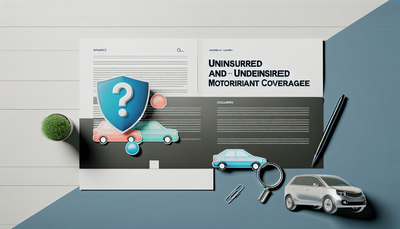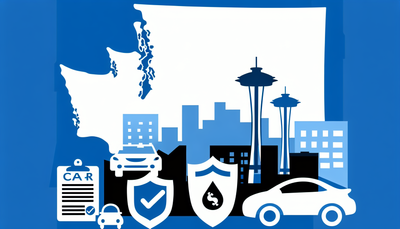Liability vs. Comprehensive: Which Car Insurance Do You Need?

Liability vs. Comprehensive: Which Car Insurance Do You Need?
When it comes to selecting car insurance, understanding the different types of coverage is crucial. Two of the most common options drivers encounter are liability coverage and comprehensive insurance. But what do these terms mean, and which one is right for you? This guide breaks down the differences, benefits, and ideal use cases for each so you can make an informed decision.
Understanding Liability Coverage
Liability coverage is the most basic form of car insurance and is often legally required. It covers damages or injuries you cause to others in an accident where you are at fault. There are two main components:
- Bodily Injury Liability: Covers medical expenses, lost wages, and legal fees if you injure someone.
- Property Damage Liability: Pays for damage to someone else's property, such as their car or a fence.
What it doesn't cover: Damage to your own vehicle or your medical expenses. If you're at fault in an accident, liability insurance helps others—not you.
Exploring Comprehensive Insurance
Comprehensive insurance, on the other hand, provides a broader range of protection. It covers damage to your vehicle that isn't caused by a collision. This includes:
- Theft
- Vandalism
- Natural disasters (like hailstorms, floods, or fires)
- Falling objects (like tree branches)
- Animal collisions (like hitting a deer)
Think of it as protection against the unexpected—events you can't control but still can cost you plenty.
What it doesn’t cover: You’ll need collision coverage (often bundled separately) for accidents involving other vehicles or stationary objects.
Key Differences at a Glance
| Feature | Liability Coverage | Comprehensive Insurance |
|---|---|---|
| Covers Your Vehicle | ❌ | ✅ |
| Covers Other People's Costs | ✅ | ❌ |
| Required by Law | ✅ (in most states) | ❌ |
| Protects Against Theft/Nature | ❌ | ✅ |
| Cost | Lower | Higher |
Which One Do You Need?
The choice between liability and comprehensive depends on several factors:
- State Requirements: Every state has minimum liability requirements. Failing to meet them can result in fines or license suspension.
- Vehicle Value: If your car is older or not worth much, comprehensive might not be worth the premium.
- Risk Factors: Live in an area prone to natural disasters, theft, or vandalism? Comprehensive might provide valuable peace of mind.
- Budget: Liability is more affordable, but comprehensive offers more protection. Balance both based on what you can afford and what you risk losing.
When to Consider Both
Many drivers opt for a combination of liability, collision, and comprehensive coverage—especially if leasing or financing a vehicle. Lenders often require full coverage, which includes comprehensive.
Final Thoughts
Choosing between liability coverage and comprehensive insurance isn’t just about price—it’s about protection. Liability is essential and often mandatory, while comprehensive guards against the unpredictable. Evaluate your personal situation, driving habits, and financial cushion before deciding.
Still unsure? Speak with a licensed insurance agent who can tailor coverage to your needs and help you navigate the wide world of car insurance types.
Want more insurance tips? Check out our Coverage Guides section for expert advice and insights into all things auto insurance!








